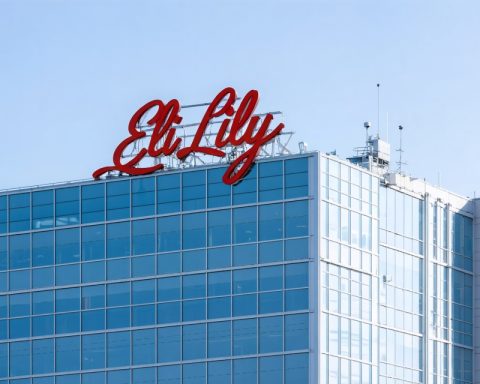Company News
In a strategic bid to solidify its market position, Nokia has embarked on an ambitious share buyback initiative. This move comes as part of their broader plan to enhance shareholder value and mitigate any negative impacts from incentive shares distributed to Infinera Corporation shareholders.
As of January 20, 2025, Nokia successfully repurchased 872,093 shares, amounting to a total cost of approximately EUR 3.9 million. With this transaction, the company now holds over 231 million shares in treasury. This action aligns with Nokia’s goal to repurchase as many as 150 million shares by the end of next year, reinforcing their commitment to both investors and operational stability.
Known as a trailblazer in B2B technology, Nokia has established itself at the forefront of developing high-performance networks across various platforms, including mobile and cloud solutions. Businesses and service providers worldwide rely on Nokia for secure and efficient network capabilities, enhancing their ability to monetize services effectively.
Currently, Nokia’s year-to-date price performance stands at 3.00%, with an average trading volume of over 2.3 million shares. Despite a technical sentiment consensus rating leaning towards sell, the company’s market capitalization remains robust at approximately €24 billion, indicating strong investor interest.
For detailed insights into Nokia’s stock and future projections, be sure to check financial analysis platforms and expert stock recommendations.
Strategic Implications of Nokia’s Share Buyback
Nokia’s recent decision to initiate a substantial share buyback program not only signifies its commitment to investor confidence but also reflects broader economic paradigms that resonate across society and culture. This action illustrates a strategic pivot that juxtaposes short-term shareholder satisfaction with long-term corporate stability, a balancing act pivotal in an era where businesses are increasingly scrutinized for their fiscal responsibilities.
In the broader context of the global economy, such financial maneuvers can influence market perceptions, potentially driving stock prices upward. As companies like Nokia execute buybacks, they can create an artificial scarcity that elevates share value, appealing to institutional investors, while also fuelling consumer optimism in the tech sector. This self-reinforcing cycle can bolster economic stability within regions where Nokia operates, highlighting the intertwining of corporate health and national economic performance.
On the environmental front, the implications of Nokia’s strategy could be profound. The tech industry is under pressure to transition to more sustainable practices. Should Nokia channel resources saved from share buybacks into eco-friendly initiatives, it could play a significant role in reducing carbon footprints across its operations and supply chain.
Looking ahead, the trend of share buybacks may persist as firms grapple with volatility and seek to project confidence. This could reshape traditional notions of corporate responsibility, influencing how companies prioritize shareholder returns versus broader societal contributions in the near future.
Nokia’s Strategic Buyback: What It Means for Investors and the Market
Overview of Nokia’s Share Buyback Initiative
In a determined effort to strengthen its market standing, Nokia has launched a noteworthy share buyback program. This initiative is strategically aligned with the company’s goals to increase shareholder value while countering potential fallback from incentive shares handed out to Infinera Corporation shareholders.
As of January 20, 2025, Nokia has repurchased 872,093 shares at a total expenditure of approximately EUR 3.9 million. Following this transaction, Nokia now retains over 231 million shares in its treasury. The company aims to broaden its repurchase efforts, with a target to buy back up to 150 million shares by the end of 2026, reinforcing its dedication not only to its investors but also to sustaining operational stability amidst fluctuating market conditions.
Market Performance and Shareholder Impact
Nokia’s year-to-date price performance is recorded at 3.00%, underpinned by an average trading volume exceeding 2.3 million shares. Even though the current consensus rating on the stock leans slightly towards a “sell,” Nokia’s market capitalization remains impressive at approximately €24 billion, signaling a sustained interest from investors.
Pros and Cons of Nokia’s Initiatives
Pros:
– Enhanced Shareholder Value: The buyback initiative is designed to amplify the value for current shareholders, potentially increasing earnings per share.
– Market Confidence: The substantial buyback can enhance market confidence in Nokia’s long-term strategies and operational viability.
Cons:
– Market Sentiment: The existing negative technical sentiment could deter some potential investors, potentially impacting the stock in the short term.
– Resource Allocation: Funding share buybacks might restrict funds available for R&D or other operational expansions.
Future Insights and Predictions
Given Nokia’s established presence in high-performance networks spanning mobile and cloud solutions, analysts predict continuous growth in network demand. This trend supports Nokia’s strategic direction and could result in favorable financial outputs in the coming years. Furthermore, the initiative may lead to increased stock prices as the buyback reduces the total number of outstanding shares, potentially driving up shareholder value.
For more detailed financial analysis on Nokia’s market position, investment strategies, and the future outlook, consider visiting relevant financial platforms for expert stock recommendations and insights into investments in the B2B technology sector.
For comprehensive information about Nokia’s business and latest updates, visit Nokia’s official website.

















